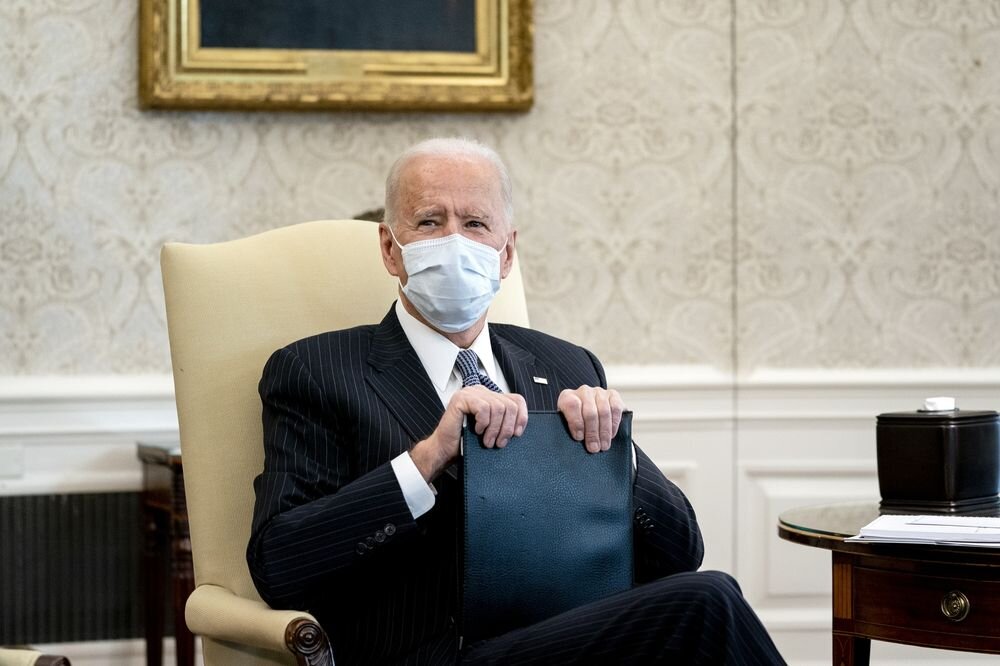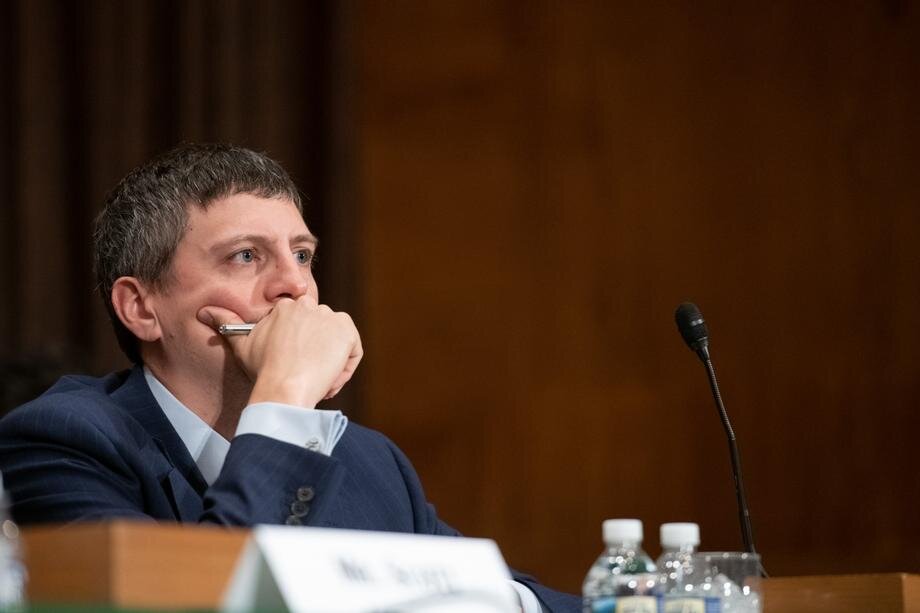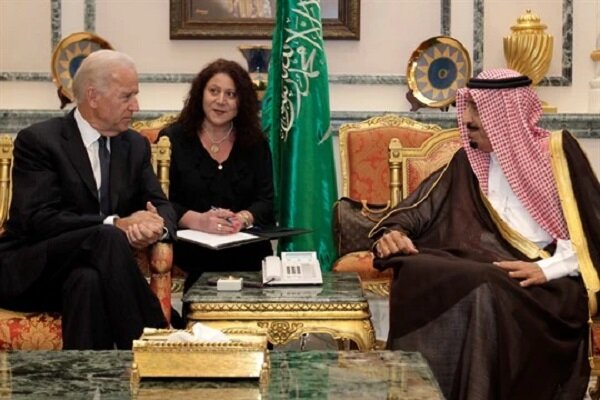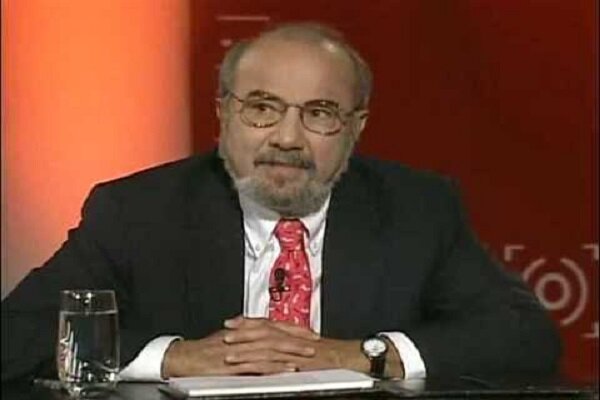It has been almost two months since the inauguration of the US government, but US President Joe Biden has not yet fulfilled one of his most important election promises - to return to the Joint Comprehensive Plan of Action (JCPOA), known commonly as the Iran nuclear deal and lift sanctions on Iran. But on the other hand, he set a series of preconditions despite the fact the previous US administration has left the deal, not Iran. Biden said that the United States will not lift sanctions against Iran as a means to resuming negotiations, and Tehran needs to stop its uranium enrichment activities first.
Meanwhile, Biden selected some officials with experience in Iran issues to implement his strategy for Iran, and the last person he chose was Richard Nephew, who is named as the “architect of the oppressive sanctions”.
From May 2011 to January 2013, Nephew served as the director for Iran at the National Security Council, where he oversaw the expansion of US sanctions on Iran before the nuclear deal in 2015. Some believe that his appointment as deputy to Robert Malley, who was criticised for being too soft on Iran, attempts to strike a balance on the State Department team.
Nephew's experiences about Iran has led to differing views about his presence on Biden's team and the impact he could have on advancing the White House's policies toward Iran. The views are that Nephew has both the ability to increase and decrease sanctions; Because he himself was involved in designing the sanctions against Iran.

Regarding Biden policies toward Riyadh, some experts believe that the US President is caught between “two opposing forces” when it comes to Saudi Arabia. During his presidential campaign, Biden said the White House would make Riyadh the “pariah that they are” and hold the kingdom accountable on human rights issues. However, Biden now sees that Riaddh’s support is important for his agenda in the Middle East region.
The US last week imposed visa restrictions on 76 Saudis who are believed to have been engaged in threatening dissidents overseas, including but not limited to the Khashoggi killing. But, Saudi Crown Prince Mohammed bin Salman has not been directly targeted by Washington, despite an intelligence report finding that he approved an operation to capture or kill journalist Jamal Khashoggi in 2018.
To know more about these issues, we reached out to Professor Hossein Askari, Economist, Emeritus Professor of Business and International Affairs at George Washington University. Following is the text of the interview with him:

Richard Nephew is known as the architects of US sanctions against Iran. Some in Iran believe that he has joined Biden’s administration because the administration intends to toughen sanction against Iran which will be contrary to President Biden’s previous promises. On the other hand, some believe his return to the US administration means the sanctions are going to be softer. What do you think of this?
I don’t think that Nephew added anything to what real architect of US sanctions on Iran Levy and his team developedThe real architect of US sanctions on Iran was Stuart Levy, the former Undersecretary of the US Treasury for Terrorism and Financial Intelligence. He was the person who saw how financial sanctions were the most effective weapon. Before him, sanctions were not effective. Levy developed the framework for policymakers. I don’t think that Nephew added anything to what Levy and his team developed. His appointment has nothing to do with how tough or easy sanctions will be under Biden. Nephew just has some understanding of the history of sanctions on Iran that will be useful to the Biden Administration as it moves ahead.
As everybody knows sanctions mostly harm people rather than governments and decision-makers. From your point of view is resorting to sanctions as a tool for achieving political goals that hurt severely usual people is moral?
US used to attack the Arab embargo of Israel, saying it was illegal. Now the US imposes more sanctions than all other countries in the world I agree totally that sanctions invariably cause more harm to the average citizen and especially the poorest members of society. The decisionmakers in the sanctioned country may even benefit through smuggling and other questionable activities. But the premise of sanctions is precisely that by causing pain on the average person, the government will be forced to change its policies. The best sanction is the well-targeted sanction that directly affects the decisionmakers. But such sanctions are tough to find. In the end, I believe that sanctions have a big blowback. The country that sends sanctions, in this case, the United States, will spawn a lot of enemies for itself. Innocent people who suffer and who even lose loved ones as a result of sanctions will remember as in the case of an unjust war.
Interestingly, the United States used to attack the Arab embargo of Israel. Saying it was illegal and against international law. Now the US imposes more sanctions than all other countries in the world combined. What hypocrisy!
Biden had promised to return to JCPOA before taking office. But after he took office he set a series of preconditions despite the fact that the one who left the deal was the US, not Iran. How do you assess these contradictory acts?
It was obvious to any thinking person that Biden would step back and demand many of the same things that Trump had initiatedWell before he was running to be President and the JCPOA was the Obama Administration’s, of which he was the Vice President, signature foreign policy success. So he wanted to restore this policy's success. But in the meantime, Trump and his Israeli allies demonized Iran—its missile program and support of its allies in the region. Let me also add that Iran has not helped its cause, such as violent verbal threats against Israel that don’t help Iran’s international image. And Iran has not managed its economy well. So it was obvious to any thinking person that Biden would step back and demand many of the same things that Trump had initiated. It is now a poker game. And I advise Iran to play its hand carefully. Don’t fall into the same trap as before. Namely giving up a great deal on its nuclear program that was not immediately recoverable while getting sanctions relief that could be immediately re-imposed. It was not a symmetrical deal. Iranian negotiators have some good cards now that they should not throw away for little relief.

Regarding Biden’s policy towards Saudi Arabia, from one side he asks Saudi Arabia to stop the war against the Yemeni people but from the other side, Biden reaffirms its commitment to defend the country. He also releases a report on Saudi rulers' role in slaughtering Khashoggi but from the other side, Biden doesn’t take any serious measures to punish the ones having hand in the murder. How do you assess the US new administration’s policy towards Riyadh? Is there any difference between Biden’s policy and Trump’s? It seems that both Biden and Trump have been using Yemen and the Khashoggi cases as a tool to get more economic advantages. What do you think of this?
Rather than imposing serious sanctions on Saudi Arabia, the US will instead help and support Mohammad bin Nayef and Ahmed bin Abdulaziz to oust MBSI believe that Biden genuinely detests the Saudi regime and especially MBS. But please remember that on the one hand, influential Americans have personal contracts (lobbyists) with the Saudi government and directly with the al-Sauds. Also, there are American corporate interests in Saudi Arabia. On the other hand, Iran is vilified by Israel, the Jewish lobby and the American media. Again, I must emphasize that Iran does not help its own cause across the world and especially in the United States with its rhetoric and actions. So while I don’t agree with Biden I see where he is coming from. He needs Congressional support for his agenda and being soft on Iran will not help him in the US Congress. But I would agree that the US and special interest groups, that is companies and lobbyists, are and will use these two cases to extract more money out of MBS and Saudi Arabia.
Let me add a footnote. At the time when MBS arrested Mohammad bin Nayef, I said that MBS will in time be overthrown because he has broken the cardinal rule of King Abdulaziz—that is to follow seniority in family rule and not plotting against one another. I said at the time that some members of the al-Sauds would overthrow MBS with the help of the United States. Today, I believe that this will happen under Biden’s presidency. Rather than imposing serious sanctions on Saudi Arabia, the US will instead help and support Muhammad bin Nayef and Ahmed bin Abdulaziz to oust MBS. Wait and see!
Interview by Zahra Mirzafarjouyan

























Your Comment